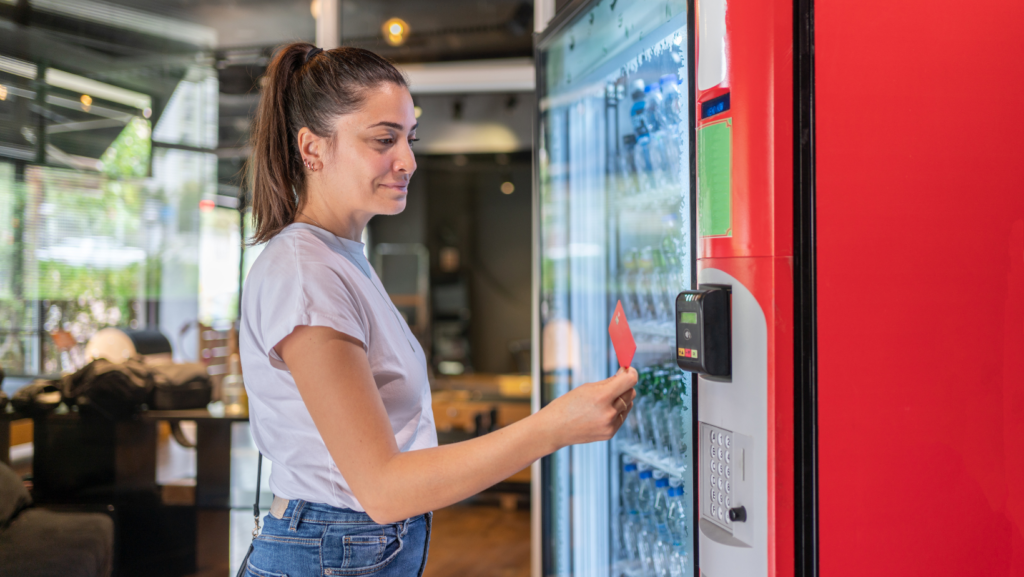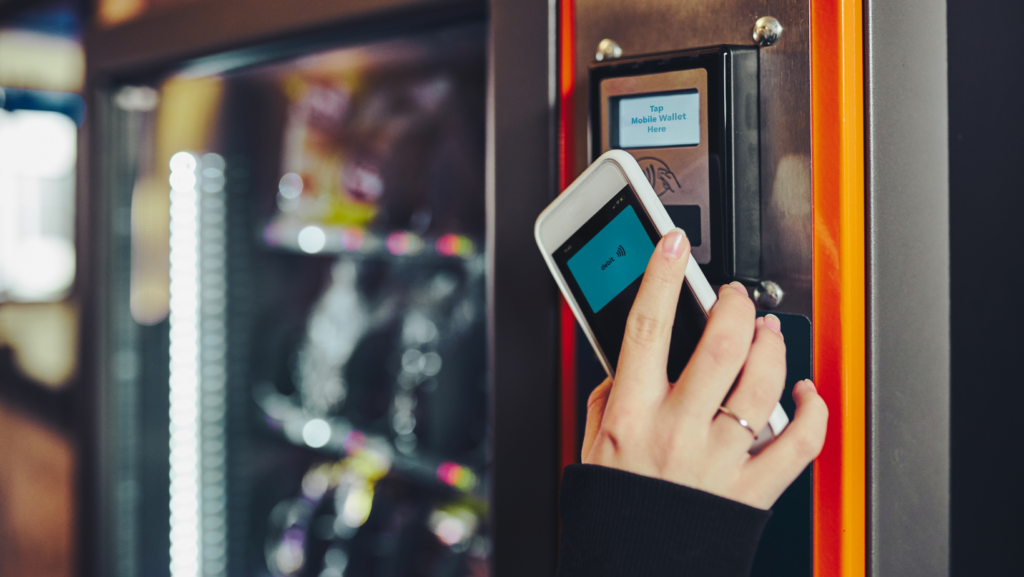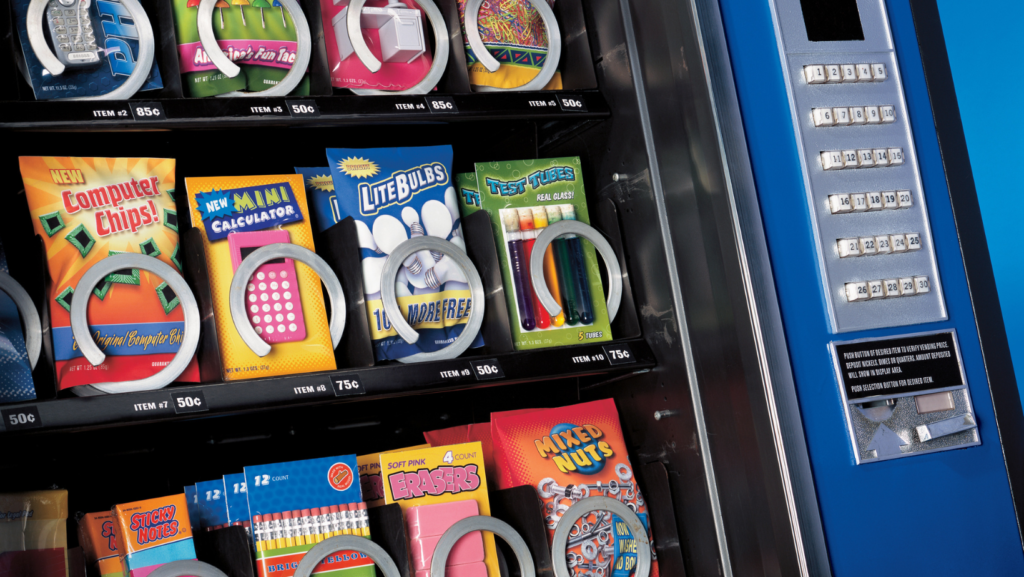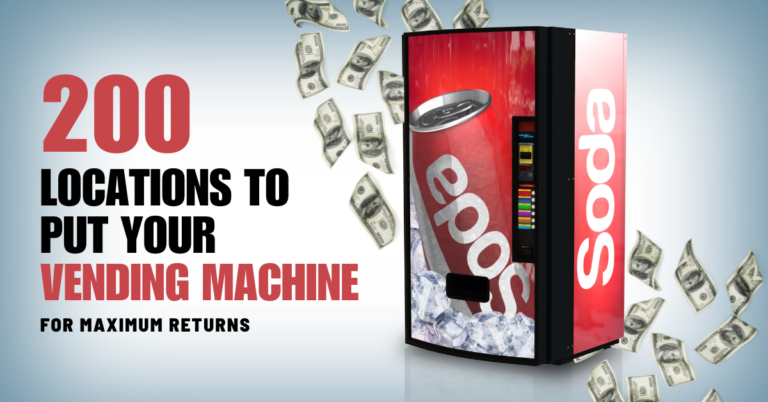Passive income is a financial stream that requires minimal effort to maintain. It’s a dream for many to earn money while sleeping or enjoying their hobbies. Among the various sources of passive income, vending machines have become increasingly popular in America.
These machines offer a blend of low maintenance, flexibility, and consistent revenue, making them an attractive investment.
Reason 1: Low Initial Investment
Starting a vending machine business doesn’t break the bank. Whether you choose to buy new or used machines, the initial cost is relatively low. New vending machines can range from $3,000 to $5,000, while used ones can be found for as little as $1,000. Financing options are also available, allowing entrepreneurs to spread out the cost and start their business without a hefty upfront payment.
Reason 2: Minimal Maintenance
One of the main advantages of vending machines is their low maintenance requirements. These machines are built to last and need only basic upkeep. Regular tasks include restocking products and occasional cleaning. Technological advancements have also made troubleshooting easier, reducing the time and effort needed for repairs. This simplicity makes vending machines an ideal choice for those looking for a hassle-free income source.

Reason 3: Flexibility in Location
The success of a vending machine business largely depends on its location. High-traffic areas such as shopping malls, schools, offices, and gyms are prime spots. The beauty of vending machines lies in their mobility. If a location underperforms, the machine can be relocated to a more profitable spot. This flexibility allows for strategic placement and maximization of profits.
Reason 4: Variety of Products
Vending machines are no longer limited to just snacks and beverages. They now offer a wide range of products, including healthy snacks, personal care items, and even electronic accessories. This variety caters to diverse consumer preferences and increases the potential customer base. Staying updated with emerging trends and consumer demands can help vending machine operators keep their offerings relevant and appealing.
Reason 5: Steady Cash Flow
Vending machines provide a steady stream of income. The convenience of having snacks and drinks available 24/7 ensures a consistent demand. Profit margins can be significant, especially in high-traffic locations. Typically, products are marked up by 50-100%, leading to substantial returns on investment. This steady cash flow is a key reason why many investors are drawn to the vending machine business.

Reason 6: Technological Advancements
Modern vending machines come equipped with advanced features that enhance user experience and operational efficiency. Touchscreens, cashless payment systems, and remote monitoring are just a few examples. These technological upgrades not only attract more customers but also simplify management. Operators can track sales, monitor inventory levels, and detect issues remotely, saving time and effort.
Reason 7: Scalability
The vending machine business is highly scalable. Once a single machine proves profitable, expanding the business is straightforward. Adding more machines in different locations can significantly increase income. Managing multiple machines is also feasible with the help of modern technology, which allows for remote monitoring and efficient inventory management.
Reason 8: Market Demand
The convenience and accessibility of vending machines drive their market demand. Consumers appreciate the quick access to products without the need to visit a store. This demand spans various locations, from urban centers to educational institutions. As lifestyles become busier, the reliance on vending machines for quick snacks and essentials is expected to grow, ensuring a steady customer base.
Reason 9: Passive Nature of Income
Compared to other passive income sources, vending machines require relatively low ongoing effort. Once set up, they can operate autonomously with minimal intervention. This passive nature allows investors to enjoy a steady income stream without sacrificing their time. The ability to earn money passively while focusing on other pursuits is a significant advantage.

My Top 5 Tips for Starting Your Own Vending Machine Business
As many of you know, I got my first start in business by buying a vending machine when I was 16 years old. With my dad’s help and tons of research – I ended up growing my vending business to operating over 10 machines throughout my city.
Here are my top 5 tips:
#1: Embrace What Sets You Apart
I’ve found that tapping into niche markets is where the magic happens. Think about what makes your vending machine business stand out. For me, it was delving into niche products like artisanal snacks or specialty beverages. By catering to specific tastes or dietary preferences, you not only capture a dedicated customer base but also set yourself apart from the competition.
#2: Seek Synergy in Locations: One of my secrets to success has been forging strategic partnerships with existing businesses. It’s all about finding locations that complement your offerings. For instance, teaming up with gyms to provide post-workout protein bars or setting up shop in coworking spaces where professionals crave convenient snacks. It’s a win-win scenario that boosts visibility and sales.
#3: Put Customers First, Always: In this business, the customer experience reigns supreme. I’ve invested heavily in making sure my vending machines not only deliver top-notch products but also create memorable interactions. From sleek interfaces to eye-catching displays, every detail is crafted with the customer in mind. It’s all about fostering that connection and building lasting loyalty.
#4: Accept all payment options: One of my main pieces of advice is to accept all payment options. Alot of people do not carry around cash anymore so in order to beat your competitors, invest in a quality card reader to put on your machine.
This will give you a one-up on your competitors in the area.
#5: Commit to Sustainability: As someone who cares deeply about the planet, sustainability isn’t just a trend—it’s a core value. That’s why I’ve made it a priority to incorporate eco-friendly practices into my business. From sourcing biodegradable packaging to using energy-efficient machines, every choice reflects my commitment to the environment. It’s not just good for the planet—it’s good for business too, attracting like-minded customers who appreciate our shared values.
By embracing these personal insights and strategies, I’ve been able to build a thriving vending machine business that not only stands out in a crowded market but also makes a positive impact on both customers and the planet.

Wrapping it Up
Vending machines have proven to be a reliable and profitable source of passive income for many Americans. Their low initial investment, minimal maintenance, and flexibility make them an appealing choice. With the added benefits of technological advancements and scalability, vending machines offer a lucrative business opportunity.
For those looking to diversify their income streams with minimal effort, investing in vending machines is a worthwhile consideration.
Frequently Asked Questions
What is the average income from a vending machine? The income from a vending machine varies based on location and product offerings. On average, a single vending machine can generate between $500 to $1000 per month.
How often do vending machines need to be restocked? Restocking frequency depends on product demand and location. High-traffic areas may require weekly restocking, while less busy locations might need it bi-weekly.
Are vending machines a good investment for beginners? Yes, vending machines are a great investment for beginners due to their low startup costs and simple maintenance. They offer a straightforward way to generate passive income.
Can vending machines be eco-friendly? Yes, vending machines can be eco-friendly. Operators can stock environmentally-friendly products and use energy-efficient machines to reduce their carbon footprint.
What permits are needed to operate a vending machine? Permit requirements vary by location. Generally, you need a business license and a vending machine permit. It’s important to check local regulations before starting.






